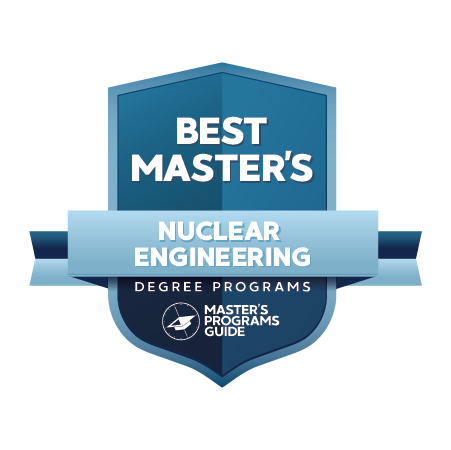Ready to find your ideal master's program?
www.mastersprogramsguide.com is an advertising-supported site. Featured or trusted partner programs and all school search, finder, or match results are for schools that compensate us. This compensation does not influence our school rankings, resource guides, or other editorially-independent information published on this site.
Looking for the best nuclear engineering schools? You’ve come to the right place.
Technology is growing. The global population is increasing.
One thing is sure. We need to find new ways to create sustainable energy and engineering practices. These will increase efficiency and reduce overall global waste. Modern society relies too much on oil. So much so that we’re on track to run out of this precious resource sooner, rather than later.
That’s where nuclear engineers come in. Nuclear engineering is crucial for the growth and development of new, non-fossil-fuel energy sources.
Nuclear engineers work hard to solve the world’s biggest energy problems. They aren’t just experts in nuclear engineering. Professionals in nuclear engineering may have a wide range of specializations. From radiation technology to nuclear medicine and diagnostic imaging. There are lots of applications for nuclear engineering in this modern world. Nuclear engineers can be found working for the government, in power plants, at universities, and in many other environments.
Both graduate students and faculty members are working hard at nuclear engineering schools across the country and around the world. They are pushing the envelope to discover new applications for nuclear engineering.
See Also: 10 Best Master’s in Industrial Engineering
COMMON APPLICATION AND ADMISSION QUESTIONS
Curious about what it takes to get into one of the best schools for nuclear engineering?
All nuclear engineering programs on this list ask for applicants to hold a bachelor’s degree in a related field of study. Many of the schools need GRE scores. You’ll also need at least three letters of recommendation and a statement of purpose. Be sure to have all of these materials in place before applying. It’ll save you both time and energy! You should also have at least a 3.0 GPA. These nuclear engineering graduate programs are challenging and rigorous. It’s essential to prove that you’re capable of handling a heavy workload.
Some schools only offer admission during the fall semester. Other nuclear engineering programs offer admission year-round. Deadlines may differ for international students. Some MS programs in nuclear engineering have students to apply for a Ph.D. at the same time.
If you’re not interested in further research and completing a thesis, be sure the nuclear engineering program you’re applying to does not need one. Many of the colleges in our list offer both thesis and non-thesis track. If you’re interested in a particular area of research in nuclear engineering or in a specialization, many schools will let you choose an area of focus once you’ve been admitted.
Some of the best nuclear engineering programs include the option to specialize in areas within the nuclear engineering field like:
- Nuclear and radiological engineering
- Medical physics
- Energy production
- Fission energy
Looking to apply for an online program in nuclear engineering? Nuclear engineering is a field that has a lot of hands-on experience and experimentation. You may not find an online program in nuclear engineering that offers all of the same benefits as those found below. Plus, on-campus programs in nuclear engineering offer tons of top facilities and research centers available for both student and faculty use.
See Also: Best Master’s in Materials Science and Engineering
WHAT ABOUT FINANCIAL AID & SCHOLARSHIPS?
The average net price of the nuclear engineering programs listed below ranges from $12,117 to $22,230 per year. The return on investment is great for nuclear engineers. But it can still be a lot of money to spend on a degree in nuclear engineering before landing a job.
The good thing is that many colleges and nuclear engineering schools offer financial aid departments. These departments help students find scholarships, loans, and more. They can help pay for their advanced degrees. Graduate students can also apply for fellowships and teaching assistantships. This can offset the price of tuition. Other nuclear engineering programs encourage students to find paid co-ops and internships during their studies.
The higher your GPA, the better your chances of being awarded a nuclear engineering scholarship right off the bat. Many nuclear engineering schools allow students to apply for other types of financial aid during their graduate studies.
You can also apply for outside scholarships from various organizations related to nuclear engineering. The Department of Defense offers the SMART Scholarship (Science, Mathematics, and Research for Transformation). This awards students up to $38,000 to use toward tuition. ExxonMobil offers the Bernard Harris Math and Science Scholarships. These encourage minority students to pursue STEM degrees. The Dr. Usha Rajagopal Scholarship is another important one for engineering majors to choose from.
So which is the best nuclear engineering school? There are nuclear engineering degrees at schools all over the country. However, if you want to be a nuclear engineering major, some of the best nuclear engineering degrees can be found at schools (some of them profiled in our ranking) like:
- North Carolina State University
- Georgia Institute of Technology
- Texas A&M University College Station
- Kansas State University
- Rensselaer Polytechnic Institute
- Purdue University West Lafayette
- University of Florida
- Pennsylvania State University
- Massachusetts Institute of Technology
- University of Michigan Ann Arbor
- University of California Berkeley (UC Berkeley)
- Georgia Institute of Technology
Nuclear engineering majors can even study and serve at the same time via institutions, government agencies, and facilities like:
- West Point Military Academy
- United States Military Academy
- Los Alamos National Laboratory
- Lawrence Livermore National Laboratory
Aspiring nuclear engineers should look for a program that allows them to explore their unique interests. Of course, the top nuclear engineering degrees on this ranking are great ones to consider, too!
HOW MUCH CAN I MAKE WITH A MASTER’S DEGREE IN NUCLEAR ENGINEERING?
According to the Bureau of Labor Statistics, nuclear engineers make an average of more than $107,000 per year. Not a bad payday! And that’s just entry-level!
Nuclear engineers are responsible for the research and development of complex processes and tools. They also the systems used to procure benefits from nuclear energy and radiation. All nuclear engineers must have a bachelor’s degree in the field. Many go on to obtain master’s and doctoral degrees as well. These advanced degrees can increase a person’s salary as they move forward in the field.
Many nuclear engineering schools offer unique areas of specialization for nuclear engineers. Companies value having nuclear engineering industry experts on their teams. What about those students who have a specific interest in:
- thermal hydraulics
- reactor safety and design
- radioactive waste management
They may find it is worth specializing in the area. This can help them to stand out from other nuclear engineering job applicants.
According to the New Engineer website, the top companies hiring nuclear engineers include:
- the Ontario Generation Company
- Urenco
- Siemens Healthineers
- Arizona Public Service Company.
The U.S. Navy is also a large employer of nuclear engineers. They work on and operate its nuclear-powered ships.
Popular careers for nuclear engineering graduates include:
- Project Engineer Analysts
- Reactor Operators
- Quality Engineers
Many people think this career is dangerous. But many nuclear engineers work in office settings or controlled labs with state-of-the-art safety features.
Check out our ranking of the 10 Best Master’s Programs in Nuclear Engineering!
#1. UNIVERSITY OF CALIFORNIA, BERKELEY
Master of Science in Nuclear Engineering
 You will find one of the best nuclear engineering masters programs at the University of California, Berkeley.
You will find one of the best nuclear engineering masters programs at the University of California, Berkeley.
The University of California, Berkeley is a public research university that opened in the late 1860s. Berkeley serves as the flagship university of the 10 University of California campuses.
The university offers more than 350 degree programs across its 14 colleges and schools. In fact, UC Berkeley offers a Master of Science degree in Nuclear Engineering. It is through the Department of Nuclear Engineering. Note that the MS track is only available to those pursuing a doctoral degree. For students interested in just a master’s degree, the university also has a Master of Engineering in Nuclear Engineering program.
Students in the MS in Nuclear Engineering program may choose from two degree plans. The first includes the completion of a thesis. That is in addition to 20 credits of graduate courses. The second plan does not have a thesis. It does include a comprehensive final exam. That is in addition to at least 24 graduate credits. Students may take a variety of nuclear engineering courses at the University of California Berkeley, one of the best schools for nuclear engineering.
They also participate in group seminars and independent research. Here they dive deep into topics like energy, safety and security, science and health, and more. You can even work with governmental agencies via this public university!
Applicants seeking admission to UC Berkeley’s nuclear engineering program should have a strong background in mathematics and science. Undergraduate transcripts and letters of recommendation must be submitted to UC Berkeley. UC Berkeley also offers ample resources and aid packages.
Students may apply for a variety of related scholarships. These include the:
- NNSA Graduate Fellowship Program
- the Dr. Usha Rajagopal $1000 Scholarship
- the Advanced Research Projects Agency-Energy (ARPA-E) funding program.
Admitted students will have the opportunity to work alongside faculty members who have extensive research experience within the field. Popular areas of research among faculty and instructors include:
- nanomaterials
- fusion technology
- nuclear astrophysics
- radiation protection.
The University of California, Berkeley is ranked among the Top 25 National Universities by U.S. News & World Report. The same report ranks the public university as a:
- Top Public School
- Most Innovative School
- among the Top 5 Best Graduate Engineering Schools.
Apply today. You can cheer on UC Berkeley’s mascot, Oski the Bear, with more than 40,000 other students who call the university home.
#2. TEXAS A&M UNIVERSITY
Master of Science in Nuclear Engineering
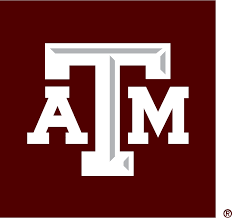 Another one of the best colleges for nuclear engineering can be found at Texas A&M University College Station. This school was established in the late 1870s. Texas A&M is a public research university located in College Station, TX. This public university is top-ranked.
Another one of the best colleges for nuclear engineering can be found at Texas A&M University College Station. This school was established in the late 1870s. Texas A&M is a public research university located in College Station, TX. This public university is top-ranked.
Texas A&M College Station offers numerous degree programs across its 19 schools and colleges. Interested in nuclear science? This nuclear engineering program is offered through the university’s College of Engineering. Graduate students may pursue a Master of Science degree in Nuclear Engineering. Students enrolled in this program must complete a thesis. That is in addition to at least 32 credit hours. And that’s in order to earn a Master of Science degree.
Students also have the option of choosing an area of specialization. Options include:
- Power Engineering
- Nonproliferation
- Nuclear Materials
- Computational Methods
- Health Physics.
Required courses you might take as a nuclear engineering major may include:
- Radiation Interaction and Shielding
- Nonproliferation and Arms Control
- Inverse Problems in Nuclear Forensics
- The Role of Intelligence in Security Affairs.
The courses in this program are guided by the department’s overall vision, which is to “support the nation’s alternative energy, national security, and healthcare missions.”
Graduate students at Texas A&M have access to the university’s many state-of-the-art research facilities. These include two research reactors, seven accelerators, and a “high-energy pulsed” plasma laboratory. The campus is also home to the Zachry Engineering Education Complex and the Frederick E. Giesecke Engineering Research Building.
Graduate students may apply for a variety of scholarships and fellowships in these nuclear engineering programs. These include the Craig Brown Outstanding Senior Engineer Award and the Stewardship Science Graduate Fellowship.
Texas A&M’s Department of Nuclear Engineering is the largest program in the nation. It is ranked No. 2 in both undergraduate and graduate studies among public universities by U.S. News & World Report. Applicants must be prepared to submit GRE test scores. That’s along with at least three letters of recommendation, a statement of purpose, and undergraduate transcripts.
Graduates of the nuclear engineering program at Texas A&M College Station have gone on to work in a variety of industries. Alumni are found at electrical power companies, national laboratories, the government, in the space industry, and more!
#3. GEORGIA INSTITUTE OF TECHNOLOGY
Master of Science in Nuclear Engineering
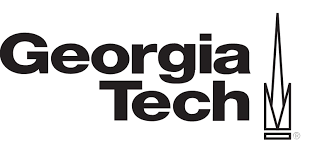 Georgia Institute of Technology is one of the best schools with nuclear engineering majors for students to choose from.
Georgia Institute of Technology is one of the best schools with nuclear engineering majors for students to choose from.
This school opened in the 1880s in Atlanta. The Georgia Institute of Technology is one of the top research universities in the nation. It is home to six unique colleges and over 25 schools. Georgia Tech is often ranked among the top public universities in the nation. The school also operates satellite campuses in France and China. Georgia Tech offers a Master of Science in Nuclear Engineering. This is through its George W. Woodruff School of Mechanical Engineering.
A thesis is not mandatory. But it may be encouraged depending on the specific course of study and career goals. All students must complete at least 30 course credits to earn a degree. Graduate courses include:
- Nuclear Radiation Detection
- Radiation Physics
- Light Water Reactor Technology
- Plasma Physics
Georgia Tech also offers a concentration in Nuclear Enterprise Management. The nuclear engineering degrees at the Georgia Institute of Technology have additional courses through the School of Mathematics. Both full- and part-time enrollment is available for these nuclear engineering programs.
Popular research areas at Georgia Tech include nuclear and radiological engineering, and medical physics. Aspiring nuclear engineers may work alongside faculty members across a variety of labs such as:
- the Fluid Mechanics Research Laboratory
- Fusion Research Center
- Radiological Science and Engineering Laboratory
Applicants should have a demonstrated understanding of subjects such as advanced mathematics and science (like physics). GRE test scores are a must for admission. So is a bachelor’s degree in a related field of study. Students have access to numerous resources at Georgia Tech. These include the school’s Center for Career Discovery and the many student organizations. There are plenty of ways to get involved and thrive in these nuclear engineering programs. The school also offers students tutoring, workshops, a Women’s Resource Center, counseling, and more.
The cost to attend Georgia Tech is less for those who reside in-state. That’s compared to students from out of state. However, the school offers plenty of scholarships and financial aid packages for all eligible students. Georgia Tech’s School of Mechanical Engineering is well respected.
Georgia Tech ranks among the nation’s Top 5 Most Innovative Schools. It is also one of the Best Value Schools and Best Colleges for Veterans by U.S. News & World Report.
#4. PURDUE UNIVERSITY
Master of Science in Nuclear Engineering
 You can find another top masters in nuclear engineering at Purdue University. Purdue is a public research university. It opened in the late 1860s in West Lafayette, IN. The university offers many top-ranked degree programs across its 13 colleges and schools. The university’s College of Engineering is the largest. Purdue also has a unique college mascot. It is known as “The Boilermaker Special” and is an old railroad car. The university itself is named after John Purdue. He was a businessman who donated both money and land. Today, Purdue is known as a college of science, technology, and agriculture. It is a land-, sea-, and space-grant university. Purdue offers more than 270 undergraduate, graduate, and doctoral degree programs. The nuclear engineering degrees here are some of the best!
You can find another top masters in nuclear engineering at Purdue University. Purdue is a public research university. It opened in the late 1860s in West Lafayette, IN. The university offers many top-ranked degree programs across its 13 colleges and schools. The university’s College of Engineering is the largest. Purdue also has a unique college mascot. It is known as “The Boilermaker Special” and is an old railroad car. The university itself is named after John Purdue. He was a businessman who donated both money and land. Today, Purdue is known as a college of science, technology, and agriculture. It is a land-, sea-, and space-grant university. Purdue offers more than 270 undergraduate, graduate, and doctoral degree programs. The nuclear engineering degrees here are some of the best!
Purdue University alumni join the ranks of more than 25 astronauts who completed the nuclear engineering degrees. There are more than 10 Nobel Laureates. Purdue University’s School of Nuclear Engineering offers a Master of Science in Nuclear Engineering. Graduate students may choose to pursue either a thesis or coursework-only option. For those interested in doing research, a thesis is encouraged. Classes at Purdue University West Lafayette include:
- Mass, Momentum, and Energy Transfer in Energy Systems
- Radiation Effects and Reactor Materials
- Nuclear Reactor Theory
- Nuclear Engineering Principles.
Interested applicants should have a strong background in various fields of mathematics and science. GRE scores are recommended. A prospective nuclear engineering major should be prepared to submit undergraduate transcripts, letters of recommendation, and a statement of purpose. Purdue University West Lafayette accepts new students into the program each fall. Deadlines may differ for international students.
The university will also consider applicants during the spring term for the nuclear engineering programs. This is on a case-by-case basis.
Purdue offers internships, scholarships, and fellowships with governmental agencies and top employers. In fact, Purdue often connects graduate students with internships and careers in the U.S. Department of Energy and other governmental agencies. Purdue is also home to many nuclear engineering research facilities. These include:
- the Applied Intelligent Systems Laboratory
- Center for Materials Under Extreme Environment
- Radiation Surface and Interface Science Laboratory
- the Thermal Hydraulics and Reactor Safety Laboratory.
The university also houses the state’s only nuclear reactor. When you choose one of these nuclear engineering degrees, you’ll be able to get some serious hands-on experience!
At Purdue, there’s an activity for everyone to get involved in with these nuclear engineering degrees. There are more than 70 engineering organizations, including the Women in Engineering Program (WIEP) and Minority Engineering Program (MEP). Graduate students at Purdue have a great community to jump into. Every state in the nation and more than 120 countries are represented in the university’s College of Engineering alone!
The average annual salary for Purdue graduates is over $65,000. U.S. News & World Report has ranked Purdue among the nation’s Best Colleges for Veterans, Most Innovative Schools, and Top Public Schools.
#5. NORTH CAROLINA STATE UNIVERSITY
Master of Science in Nuclear Engineering
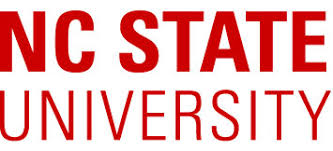 Another one of the best colleges for nuclear engineering is at North Carolina State university. This public university is ideal for the aspiring nuclear engineering major.
Another one of the best colleges for nuclear engineering is at North Carolina State university. This public university is ideal for the aspiring nuclear engineering major.
North Carolina State University is a land-, sea-, and space-grant school. It is dedicated to research. Admitted students will join NC State’s “Wolfpack.” They’ll find themselves in what is called the “Research Triangle.” The triangle is anchored by North Carolina State University, in Raleigh; Duke University, in Durham; and The University of North Carolina at Chapel Hill, in Chapel Hill. This makes it an ideal location for those interested in mathematics and science.
In fact, North Carolina State University offers a comprehensive Master of Science in Nuclear Engineering. This is through its Department of Nuclear Engineering, which is a part of the College of Engineering. The nuclear engineering programs here are some of the best!
All graduate students complete at least 30 credit hours and a thesis for these nuclear engineering degrees. This includes an additional 3-6 hours of research. Required courses at this best nuclear engineering school may include:
- Nuclear Reactor Operations Training
- Radiation Safety and Shielding
- Nuclear Fuel Cycles
- Nuclear Waste Management.
As a public university, NC State offers an online non-thesis Master of Nuclear Engineering (MNE) degree. Distance applicants don’t need to submit GRE scores. That is unlike those who apply for on-campus admission. All prospective students must submit undergraduate transcripts, a personal statement of purpose, a resume, and at least three letters of recommendation. Applications are accepted for the fall and spring semesters. Deadlines may differ for international students. Summer admission is available only for distance learners.
NC State offers many research facilities and labs for students to take advantage of. This also allows them to gain hands-on experience prior to graduating. The facilities for these nuclear engineering degrees include:
- the Consortium for Advanced Simulation of Light Water Reactors
- the Nuclear Reactor Program Center
- the Center for Nuclear Energy Facilities and Structures (CNEFS).
Graduate students may also join one of many research groups. These include the Plasma for Life Sciences Group and the MultiPhase Research Group. Graduate students work with faculty members in their various research endeavors. The Department of Nuclear Energy at NC State specializes in the following areas of study:
- nuclear materials and fission power
- computational science
- industrial applications of plasma
- radiation applications
- radiological engineering.
This best nuclear engineering school also offers an accelerated BS/MS degree program. NC State University is ranked among the nation’s Best Value Schools, Most Innovative Schools, Top Public Schools, and Best Colleges for Veterans. That’s by U.S. News & World Report.
#6. UNIVERSITY OF WISCONSIN – MADISON
Master of Science and Ph.D., Nuclear Engineering and Engineering Physics
 The University of Wisconsin-Madison opened in 1848. It offers a variety of degree programs across its 13 schools and colleges.
The University of Wisconsin-Madison opened in 1848. It offers a variety of degree programs across its 13 schools and colleges.
UW-Madison has seen many firsts since its founding. This includes the discoveries of both Vitamin A and B and the first university dance program. It’s no surprise that UW-Madison is one of the Most Innovative Schools in the nation. That’s according to U.S. News & World Report.
Looking to be a part of the next big thing? Check out the university’s Master of Science and Ph.D. in Nuclear Engineering and Engineering Physics. It is offered through the Department of Engineering Physics. Students enrolled at this best nuclear engineering school have several options to pursue. The MS can be pursued as a stand-alone terminal degree. This is ideal for students interested in areas of engineering physics and fission as well.
Those whose interests lie in the fusion area should consider a Ph.D. Many students accepted into the program hold undergraduate degrees in:
- nuclear engineering
- physics
- mechanical engineering
- electrical engineering
Group research and teamwork is a big part of graduate learning at UW-Madison. For these nuclear engineering degrees, you need to collaborate!
Admitted students can expect to take many challenging and exciting courses rooted in engineering, science, and mathematics. Required courses you might take as a nuclear engineering major may include:
- Nuclear Reactor Theory
- Ionizing Radiation
- Principles of Corrosion
- Monte Carlo Radiation Transport
- Plasma Processing and Technology
The university also encourages students to get involved with the many research organizations on campus. These include the:
- Wisconsin Institute of Nuclear Systems
- the Pegasus Toroidal Experiment Program
- the Fusion Technology Institute
- the Center for Plasma Theory and Computation.
You must submit GRE scores to be considered for admission to this best nuclear engineering school. All students are paired with a faculty advisor. This advisor then serves as a point of contact for guidance and support throughout their graduate studies. Graduate students are expected to attend a once-a-week Engineering Physics Colloquium. This is in addition to their classes. Eligible students may wish to apply for scholarships and/or fellowships to offset the cost of tuition. These include the:
- Department of Energy Computational Science Graduate Fellowship
- Nuclear Forensics Graduate Fellowship Program
- Rickover Fellowship Program in Nuclear Engineering
UW-Madison also offers plenty of resources to help its graduate students to maintain a positive work – life balance. These include the University Health Services Wellness Center and the Veteran Services and Military Assistance Center. There is a place for everyone at UW-Madison to find support.
#7. UNIVERSITY OF ILLINOIS AT URBANA-CHAMPAIGN
Master of Science in Nuclear, Plasma, and Radiological Engineering
 One of the top 10 colleges for nuclear engineering is the University of Illinois at Urbana-Champaign. This school is a land-grant public research university founded in the late 1860s. The University of Illinois at Urbana-Champaign offers more than 100 graduate programs across its 16 schools and colleges. Students come from all 50 states and more than 100 countries to study at UIUC. The campus offers beautiful facilities and a convenient location. Plus, the faculty members are the best of the best. Professors here are Pulitzer Prize winners and Nobel Laureates. They are members of prestigious academies and organizations. Of course, it has one of the best nuclear engineering schools, too.
One of the top 10 colleges for nuclear engineering is the University of Illinois at Urbana-Champaign. This school is a land-grant public research university founded in the late 1860s. The University of Illinois at Urbana-Champaign offers more than 100 graduate programs across its 16 schools and colleges. Students come from all 50 states and more than 100 countries to study at UIUC. The campus offers beautiful facilities and a convenient location. Plus, the faculty members are the best of the best. Professors here are Pulitzer Prize winners and Nobel Laureates. They are members of prestigious academies and organizations. Of course, it has one of the best nuclear engineering schools, too.
UIUC’s Master of Science in Nuclear, Plasma, and Radiological Engineering is offered through the College of Engineering. This degree can be completed in just three traditional semesters, plus one summer session. All admitted students must choose an area of concentration.
Some popular areas at this school, like other nuclear engineering schools, include:
- plasma engineering and processing
- neutron scattering
- biomedical imaging
- reactor safety.
Required courses you might take as a nuclear engineering major may include:
- Fundamentals of Nuclear Engineering
- Nuclear Power Engineering
- Plasma and Fusion Science
- Radiological Imaging
- Plasma Waves.
All students must choose an area for their thesis research. All students must complete at least 32 credit hours while maintaining a minimum GPA of 2.75 for these nuclear engineering schools.
The University of Illinois at Urbana-Champaign is home to the world’s second-largest academic library. Both students and faculty members can take advantage of it. The university also houses a research park. This operates as a tech hub for both start-ups and corporate R&D operations. The university continues to expand and grow.
This is thanks to the many grants awarded to the school. The university was awarded $25 million for photosynthesis research and $20 million for research. This was to improve power density in electro-thermal systems. There is no shortage of resources for graduate students to experiment. You’ll get plenty of hands-on experience. The university has plenty of research centers. There are some that are geared toward engineering students. These include:
- the Laboratory for Optical Physics and Engineering
- the Neuroengineering IGERT
- the Healthcare Engineering Systems Center.
U.S. News & World Report ranked UIUC among the Most Innovative Schools, Best Value Schools, and Top Public Schools. The average net cost of attendance is just over $16,000. Students may apply for a variety of scholarships and financial aid packages to offset tuition costs.
#8. MISSOURI UNIVERSITY OF SCIENCE AND TECHNOLOGY
Master of Science in Nuclear Engineering
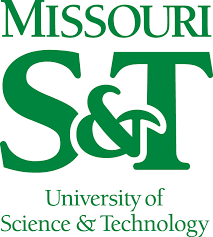 Believe it or not, you’ll find one of the best nuclear engineering schools in the world at a small town in Missouri. Missouri University of Science and Technology opened in 1870. It is a land- and space-grant university based in the small town of Rolla. These nuclear engineering schools place a strong emphasis on STEM programs. In fact, the school’s only two colleges are the College of Arts, Sciences, and Business, and the College of Engineering and Computing. Students may choose from 99 degree programs across 40 areas of study.
Believe it or not, you’ll find one of the best nuclear engineering schools in the world at a small town in Missouri. Missouri University of Science and Technology opened in 1870. It is a land- and space-grant university based in the small town of Rolla. These nuclear engineering schools place a strong emphasis on STEM programs. In fact, the school’s only two colleges are the College of Arts, Sciences, and Business, and the College of Engineering and Computing. Students may choose from 99 degree programs across 40 areas of study.
The College of Engineering and Computing offers a Master of Science in Nuclear Engineering. Students should already hold a bachelor’s degree in a related field of study. This should be in physics and/or engineering. Graduate students may choose from either a thesis or a non-thesis track. All students must complete at least 30 credit hours to graduate.
Looking to specialize in a specific research area? Missouri University of Science and Technology offers tons of specializations! Popular options include:
- radiation protection
- thermal hydraulics
- reactor safety
- reactor design
- waste management
Students will get plenty of hands-on experience prior to starting careers in nuclear engineering.
Students and faculty alike appreciate the various state-of-the-art facilities the university offers. It has a 200 kW pool-type nuclear reactor for experiments. The university also houses a radiation measurements lab, nuclear materials lab, an internet-accessible hot cell facility. There is even a computer lab with a variety of workstations. These are equipped with different software and programs geared toward engineering. Students also have access to an advanced radiography and tomography lab. There is a two-phase flow and thermal-hydraulics laboratory.
Graduate students may also want to join one of the university’s engineering professional and honor societies. Options include:
- the National Honor Society for Nuclear Science and Engineering
- Alpha Nu Sigma
- the American Nuclear Society
- Women in Nuclear (WiN)
There’s something for everyone to get involved in at these nuclear engineering schools.
Are you interested in applying but not sure about the cost of tuition? The university offers plenty of departmental scholarships and fellowships.
The university prepares students with the skills they need to succeed in the nuclear engineering field. The Office of Career Opportunities and Employer Relations ensures they land an internship and/or job as well. Graduate students attend on-campus career fairs twice each year. There are often more than 300 companies in attendance. Further, the university has a “suit closet” where students can grab the professional attire they need to impress recruiters. The school is ranked by U.S. News & World Report as a Top Public School and Best College for Veterans. The Missouri University of Science and Technology is named a Top Engineering School in the country for good reason.
#9. OREGON STATE UNIVERSITY
Master of Science in Nuclear Engineering
 You will find one of the best universities for nuclear engineering at Oregon State University. Oregon State University opened in the late 1860s in the city of Corvallis. It has grown to become the leading public research institution in the Beaver State.
You will find one of the best universities for nuclear engineering at Oregon State University. Oregon State University opened in the late 1860s in the city of Corvallis. It has grown to become the leading public research institution in the Beaver State.
The university boasts more than 10 colleges across its two campuses. There are 14 experiment stations. These allow students to gain plenty of hands-on experience prior to graduation. OSU is one of only two public universities in the nation with the sea-, space-, sun-, and land-grant designation. Popular degree programs at OSU include:
- Forestry
- Marine Biology
- Robotics
- Mycology.
The university also has a huge population of engineering students. The university’s School of Nuclear Science and Engineering offers a comprehensive Master of Science degree in Nuclear Engineering.
Prospective students should be prepared to submit a:
- statement of purpose
- three reference letters
- GRE scores
- college transcripts.
New students are admitted into the program each fall semester. Deadlines may differ for international students. Graduate engineering students at OSU often focus on research in one of six main areas. These range from radiation transport and reactor physics to materials for nuclear engineering applications.
Depending on the area of specialization, courses may include:
- Nuclear Reactor Safety
- Radiation Shielding and External Dosimetry
- Energy production
- Medical physics
- Fission energy
- Nuclear Reactor Thermal Hydraulics.
All students in the MS program must complete a thesis. Many go on to pursue a doctoral degree. The university also offers an MEng degree option. This degree doesn’t include a thesis. Students complete a comprehensive oral exam instead.
Oregon State University houses plenty of high-end research facilities for both students’ and faculty members’ research. These include:
- the Advanced Nuclear Systems Engineering Laboratory
- High Temperature Test Facility
- NuScale Integrated Systems Test facility
- Oregon State TRIGA Reactor
- the Multi-Application Light Water Reactor.
OSU has been ranked among the nation’s Best Value Schools, Top Public Schools, and Most Innovative Schools. This was by U.S. News & World Report. The same publication included OSU on its list of Top 75 Best Engineering Schools for Graduate Students. Forbes ranked Corvallis among the nation’s Top 5 Best College Towns.
Many companies have been founded by those who’ve passed through OSU. The list includes Panda Express, U-Haul, and E-TRADE.
Looking to join OSU but need some tuition assistance? The university offers both assistantships and fellowships for graduate students. Graduate TAs may receive tuition remission and a monthly stipend of more than $1,500. About four to six fellowships are also awarded each year.
#10. MASSACHUSETTS INSTITUTE OF TECHNOLOGY
Master of Science in Nuclear Science and Engineering
 The Massachusetts Institute of Technology is one of the top nuclear engineering schools in the country. It is known as MIT to most. It opened as a private research university in 1861 in Cambridge, MA. MIT is a land-, sea-, and space-grant university. There are plenty of undergraduate, graduate, and doctoral programs. The Department of Nuclear Science and Engineering, a part of the School of Engineering, offers a Master of Science in Nuclear Science and Engineering. Of its five schools, Massachusetts Institute of Technology’s School of Engineering has the greatest number of students.
The Massachusetts Institute of Technology is one of the top nuclear engineering schools in the country. It is known as MIT to most. It opened as a private research university in 1861 in Cambridge, MA. MIT is a land-, sea-, and space-grant university. There are plenty of undergraduate, graduate, and doctoral programs. The Department of Nuclear Science and Engineering, a part of the School of Engineering, offers a Master of Science in Nuclear Science and Engineering. Of its five schools, Massachusetts Institute of Technology’s School of Engineering has the greatest number of students.
Applicants should hold a bachelor’s degree in a related field. Options include physics, chemistry, mathematics, or engineering. Interested applicants also should have a strong background in mathematics and science subject areas.
Required courses you might take as a nuclear engineering major in this MS program may include:
- Materials in Nuclear Engineering
- Essential Numerical Methods
- Radiation Interactions, Control, and Measurement
- Nuclear Technology and Society.
Popular research areas for graduate students in the program include:
- nuclear security
- applied plasma physics
- energy production
- medical physics
- fission energy
- nuclear fission technology
MIT also has a number of research centers and experimental facilities. These include:
- the Research Reactor in MIT’s Nuclear Reactor Laboratory
- the Plasma Science and Fusion Center
- a thermal hydraulics laboratory
- the H. H. Uhlig Corrosion Laboratory.
The school even has a Communications Lab for engineers. It’s great to come up with innovations. But you also need to be able to communicate your findings with others. The lab offers extensive writing, speaking, and visual design support services. These are for students in the program. Specific courses this lab supports include:
- Social Problems of Nuclear Energy
- Radiation Damage
- Effects in Nuclear Materials.
Graduate students can pursue internships and study abroad opportunities. Some of these include:
- a Nuclear Bootcamp
- the Alden Research Laboratory Internship Program
- Summer Research International Research Opportunities Program (IROP) at the Moscow Institute of Physics.
When it comes to STEM education, the Massachusetts Institute of Technology is a leading school. That’s not just in the United States, but around the world. In fact, MIT has admitted students from over 45 countries. MIT ranks among the Top 5 Best National Universities, according to U.S. News & World Report. The same report also ranks MIT among the Top 5 Best Value Schools, Most Innovative Schools, and Best Engineering Programs in the country.
MIT even offers an accelerated 5-year program. There are also a number of fellowships offered through MIT for eligible students. Options include the Link Foundation Energy Fellowship and the Nuclear Nonproliferation International Safeguards Graduate Fellowship Program. There’s a program for everyone!
OTHER NOTABLE PROGRAMS
#11. University of New Mexico
Location: Albuquerque, New Mexico
Degree: MS in Nuclear Engineering
Net Price: $11,283
#12. The University of Tennessee, Knoxville
Location: Knoxville, Tennessee
Degree: MS in Nuclear Engineering
Net Price: $20,995
#13. University of Massachusetts Lowell
Location: Lowell, Massachusetts
Degree: MS in Nuclear Engineering
Net Price: $18,375
#14. The Ohio State University
Location: Columbus, Ohio
Degree: MS in Nuclear Engineering
Net Price: $18,042
#15. Pennsylvania State University
Location: Centre County, Pennsylvania
Degree: MS in Nuclear Engineering
Net Price: $25,346
#16. University of Missouri
Location: Columbia, Missouri
Degree: MS in Nuclear Engineering
Net Price: $17,762
#17. Virginia Tech
Location: Blacksburg, Virginia
Degree: MS in Nuclear Engineering
Net Price: $18,700
#18. University of Idaho
Location: Moscow, Idaho
Degree: MS in Nuclear Engineering
Net Price: $14,997
#19. University of Florida
Location: Gainesville, Florida
Degree: MEng in Nuclear Engineering
Net Price: $15,283
#20. University of Nevada, Las Vegas
Location: Las Vegas, Nevada
Degree: MS in Materials and Nuclear Engineering
Net Price: $11,582
